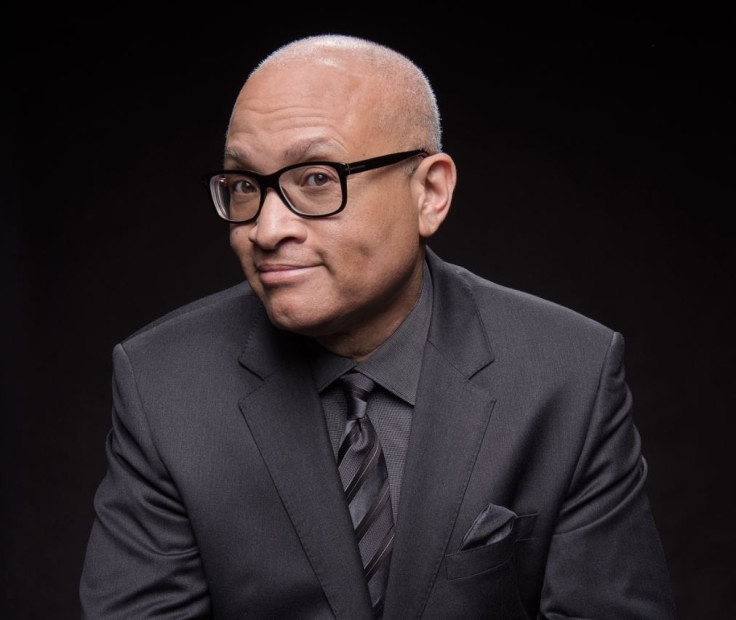Comedy Central's Larry Wilmore Will Need Web To Succeed In Crowded Fake News Market

One of the first jokes Stephen Colbert's time-slot successor Larry Wilmore made during the first episode of "The Nightly Show" Monday was about his bad timing. “All the good bad race stuff has happened already,” Wilmore quipped, referring to the emotional protests that bubbled over in Ferguson, Cleveland, New York City and elsewhere over this past year.
Though the news cycle will factor into Wilmore's success, "The Nightly Show's" fate will more likely be determined by its digital video strategy. Today, the battle for late-night TV happens in the morning, when thousands of websites and social media users begin spreading around clips from the previous evening. Though television advertising dollars remain the bedrock of shows such as “The Tonight Show Starring Jimmy Fallon” and the “Late Show With David Letterman,” the most successful late-night shows have spent the past several years optimizing themselves to live online and spread throughout social media.
“That's the way a lot of people watch it,” said Robert Thompson, the director of the Bleier Center for Television and Popular Culture at Syracuse University. “I know plenty of students who can tell you what happened on Jon Stewart last week, and they don’t even own a TV.”
"The Nightly Show" is off to a decent start in this regard. After Comedy Central announced Tuesday morning that clips were available online, posts began appearing on a wide swath of websites, from New York magazine's popular Vulture blog to longtime Web magazine Salon to political junkie news source Talking Points Memo.
While many television programs have benefited from the growth of Web video, few have prospered like the late shows. Since debuting in 2006, Fallon’s YouTube channel has accumulated nearly 2 billion views, while Jimmy Kimmel’s has racked up more than 1.6 billion, and in its first season alone, “Last Week Tonight With John Oliver” piled up more than 186 million. To put those numbers in perspective, CNN’s YouTube channel, which came online in 2005, has 599 million views. ESPN’s has even less, just 519 million views.
For "The Nightly Show" to succeed, being funny, or incisive, or observant will not be enough. The show will have to be something people feel compelled to share and are able to share with ease, and how they achieve that is top of mind for the show's executives.
“We’ve had that conversation a lot,” co-executive producer Amy Ozols said.
Keep It 100
In the runup to "The Nightly Show's" launch, Comedy Central emphasized that dialogue and discussion will be the show’s heart. But Monday's premiere suggests that the show’s heads have already baked in a number of segment ideas that they expect will travel well on social media.
“There’s going to be a lot of calls to action,” Robin Thede, the show’s head writer, said. “A lot of things that we know how to do that will enable people to continue the conversation for the other 23 and half hours the show’s not on the air.”
Thede was clearly referring to #KeepIt100, a segment that closed the show that consists of Wilmore putting tough questions to his guests and demanding they give straightforward, honest answers. Yesterday, that consisted of asking Senator Cory Booker if he wanted to be president, rapper Talib Kweli whether hip-hop fed off negative stereotypes and comedian Bill Burr what race he wanted his children to be.
“It’s like being at the barber shop,” Wilmore told a crowd of journalists at a breakfast last week. “If you don’t come with it, we’re going to call you on your s---.”
Wilmore, it seems, will be holding himself to the same standard. While teasing the lineup and topic for Tuesday’s show, he answered the following question -- "What was the last racist thought you had?" -- sent in from Twitter (in this case, his own show’s Twitter account).
Small Pieces
That clip, along with every other scrap of Monday's episode, was available both on Hulu and on Comedy Central's website by Tuesday morning. In addition to a stream of the entire episode, individual segments, as well as one clip that summarizes the entire episode in 60 seconds, were up and ready to go with pre-roll advertisements in place.
“We know how to structure everything so it’s in very digestible pieces,” Thede said.
Expanding the "Nightly Show's" arsenal of popular segments will be key. It will require adapting to Wilmore's personality and temperament, which is certainly more measured than Fallon's and less gregarious than Stewart's.
"Are we going to have a bunch of GIFs of Larry dancing around?" Ozols asked rhetorically. "I don’t know. That’s not necessarily Larry’s thing."
Yet Ozols believes that, more than anything, staying true to her star's personality will be enough.
"Everybody in the late-night landscape, which is very crowded, just does their thing," she said. "If people like the person doing it, they’re going to show up."
© Copyright IBTimes 2025. All rights reserved.





















